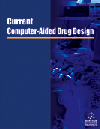
Proteomics in Computer-Aided Drug Design
Proteins are functional molecules in cells and are the major targets for drug action. To design a rational drug, we must firstly find out which proteins can be the drug targets in pathogenesis. Proteomics has great promise in identification of protein targets and biochemical pathways involved in disease processes. Proteomics as a whole increasingly plays an important role in the multi-step drug-development process. The process includes target identification and validation, lead selection, small-molecular screening and optimization, and toxicity testing. Furthermore, sub-disciplines such as computational proteomics, chemical proteomics, structural proteomics and topological proteomics offer significant contributions especially in computer-aided drug design. This review will summarize the recent progress in pharmaco-proteomics and the discipline's potential application in computer-assisted drug design.
Keywords: computer-aided drug design; drug design; drug target; lead validation; protein profiling; protein target; proteomics; target identification
Document Type: Review Article
Affiliations: Department of Chemistry, The University of Hong Kong, Pokfulam, Hong Kong, China.
Publication date: 01 January 2005
- Current Computer-Aided Drug Design aims to publish all the latest developments in drug design based on computational techniques. The field of computer-aided drug design has had extensive impact in the area of drug design. Current Computer-Aided Drug Design is an essential journal for all medicinal chemists who wish to be kept informed and up-to-date with all the latest and important developments in computer-aided methodologies and their applications in drug discovery. Each issue contains a series of timely, in-depth reviews written by leaders in the field, covering a range of computational techniques for drug design, screening, ADME studies, etc., providing excellent rationales for drug development.
- Editorial Board
- Information for Authors
- Subscribe to this Title
- Ingenta Connect is not responsible for the content or availability of external websites
- Access Key
- Free content
- Partial Free content
- New content
- Open access content
- Partial Open access content
- Subscribed content
- Partial Subscribed content
- Free trial content